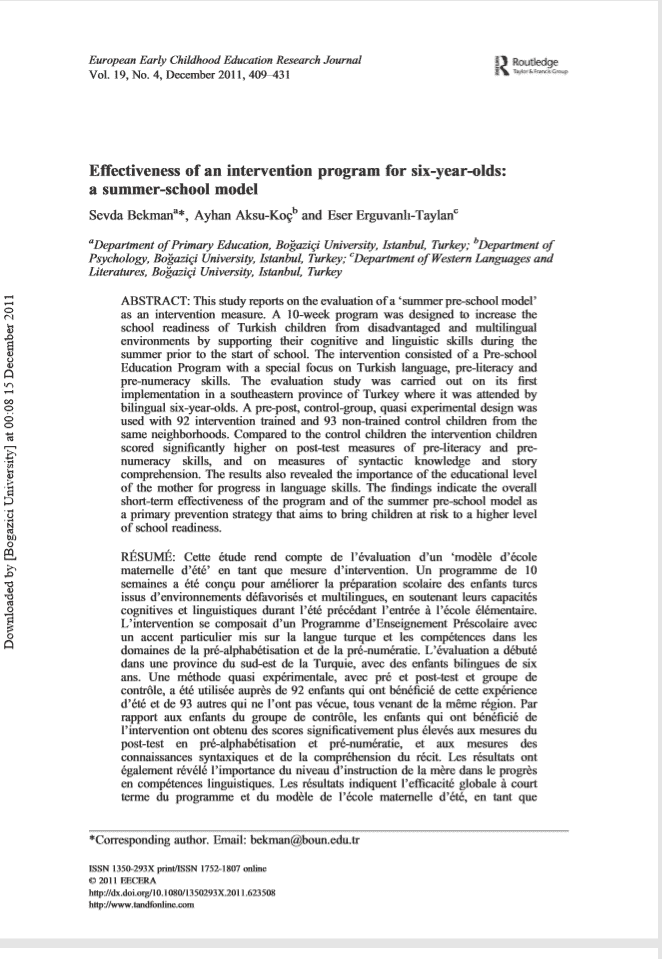Effectiveness of an Intervention Program for Six-Year-Olds: A Summer-school Model
Child
Author
Sevda Bekman, Ayhan Aksu-Koç, Eser Erguvanlı-Taylan
Year
2012
Abstract
This study reports on the evaluation of a ‘summer-preschool model’ as an intervention measure. A 10-week program was designed to increase the school readiness of Turkish children from disadvantaged and multilingual environments by supporting their cognitive and linguistic skills during the summer prior to the start of school. The intervention consisted of a Preschool Education Program with a special focus on Turkish language, pre-literacy and pre-numeracy skills. The evaluation study was carried out on its fi rst implementation in a southeastern province of Turkey where it was attended by bilingual six-year-olds. A pre-post, control-group, quasi experimental design was used with 92 intervention trained and 93 non-trained control children from the same neighborhoods. Compared to the control children, the intervention children scored signifi cantly higher on post-test measures of pre-literacy and pre-numeracy skills, and on measures of syntactic knowledge and story comprehension. The results also revealed the importance of the educational level of the mother for progress in language skills. The fi ndings indicate the overall short-term effectiveness of the program and of the summer pre-school model as a primary prevention strategy that aims to bring children at risk to a higher level of school readiness.
Keywords
Early support, centre based early childhood education, pre-literacy skills, pre-numeracy skills, support in the second language
Reference
Bekman, S., Aksu-Koç, A., & Erguvanlı-Taylan, E. (2012). Effectiveness of an intervention program for six-year-olds: A summer-school model. European Early Childhood Education Research Journal, 19, 409-431.





